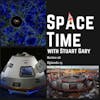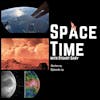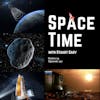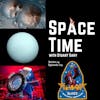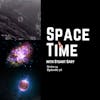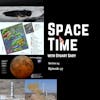96: How Galaxies Get their Iconic Spirals

The astronomy and space science news podcast.
SpaceTimmewithStuartGaryS22E96
The astronomy and space science news podcast.
Stream podcast episodes on demand from www.bitesz.com/spacetime (mobile friendly).
*How galaxies get their iconic spirals
A new study claims galactic magnetic fields could play an important role in shaping the elegant sweeping arms of spiral galaxies like the Milky Way.
*Best ever pulsar maps and measurements
Astrophysicists are literally rewriting and redrawing the textbook on pulsars after obtaining the most precise and dependable measurements of both a pulsar's size and its mass, as well as the first-ever map of hot spots on its surface.
You tube video url: https://spacetimewithstuartgary.tumblr.com/post/189736850098
*US Space Force is now a thing
U.S. President Donald Trump has formally signed the 2020 National Defense Authorization Act which officially establishes the United States Space Force as a new sixth branch of the American armed services.
*Third AMS spacewalk
Crew aboard the International Space Station have carried out the third of four planned spacewalks to service and upgrade AMS-02 – the Alpha Magnetic Spectrometer -- a device designed to capture cosmic rays and antimatter particles -- and to hunt for signs of mysterious dark matter.
*India spy satellite launch
India has launched a new spy satellite into orbit.
*Third flight in a row for same Falcon 9 rocket
SpaceX has successfully launched the new JCSAT-18/Kacific1 telecommunications satellite aboard a Falcon 9 rocket.
You tube video url: https://spacetimewithstuartgary.tumblr.com/post/189713545878
*China’s space launch blitz continues
It may be the end of year holiday season but China’s space blitz is continuing with the launch of two more BeiDou-3 navigation satellites followed by a new Sino-Brazilian Earth observation satellite.
*Russia launches new navigation satellite
Russian space forces have launched a Soyuz-2.1b rocket carrying a Glonass-M navigation satellite into orbit.
*The Science Report
Now impossible for the Earth not to increase average temperatures by two degrees in coming years.
Research warns global warming makes it more difficult to predict year-to-year global climate variations.
Excess salty water discharge from the Sydney Desalination Plant is attracting lots of fish.
Eating ultra-processed foods linked to an increase risk of developing type 2 diabetes.
How cats use marks on their ears to communicate.
SBS wins Australian Skeptic’s 2019 bent spoon award for the worst pseudo-scientific piffle of the year.
For enhanced Show Notes including photos to accompany this episode, visit: http://www.bitesz.com/spacetimeshownotes
Get immediate access to over 170 commercial-free, double episode editions of SpaceTime plus extended interview bonus content. Subscribe via Patreon or Supercast....and share in the rewards. Details at www.patreon.com/spacetimewithstuartgary or if you’re not a fan of Patreon, go to Supercast - https://bitesz.supercast.tech/
RSS feed:
See acast.com/privacy for privacy and opt-out information.
The Astronomy, Space, Technology & Science News Podcast.
New to SpaceTime with Stuart Gary?
Here are some great episodes to start with.








































